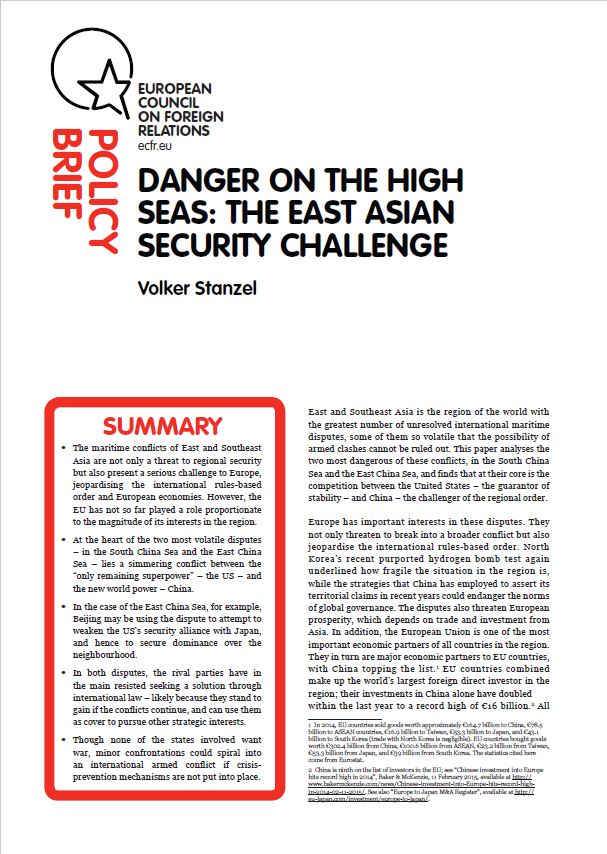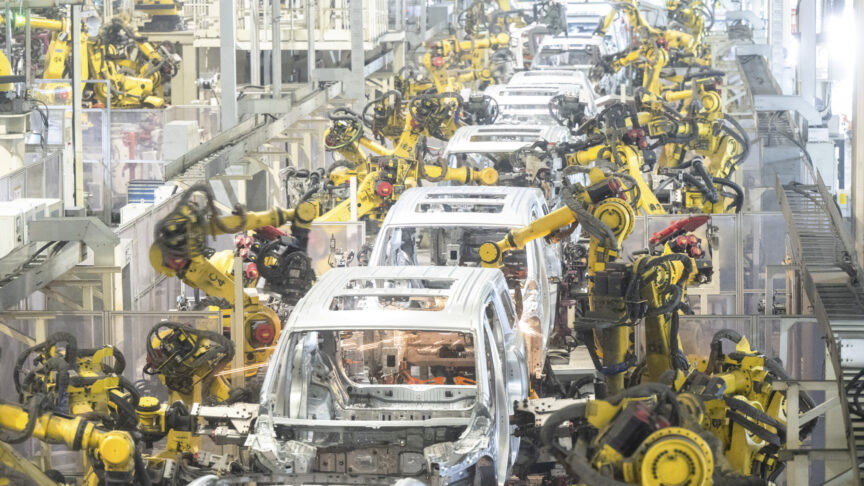Danger on the High Seas: The East Asian Security Challenge
Europe’s member states have too much to lose from a maritime conflict in East Asia to maintain their current position as a cautious observers
Europe’s member states have too much to lose from a maritime conflict in East Asia to maintain their current position as cautious observers, according to a new report from ECFR.
“Danger on the High Seas: An East Asian Security Challenge”, by Volker Stanzel, a former German ambassador in both Beijing and Tokyo, explores the territorial and diplomatic drivers underpinning maritime border disputes in the South and East China Seas, highlighting in particular the combination of USA-China competition and Beijing’s assertive and unpredictable behaviour in the region.
Stanzel argues that, although EU member states have a large commercial and security interest in the resolution of these disputes, European soft power has been lacking in the region. Marginalised by the hard power rivalry of China, the US and other regional players, and distracted by crises in its immediate neighbourhood, Europe has been reduced to a virtual bystander.
While a militarisation of Europe’s Asia policy is neither feasible nor desirable, Stanzel calls for an expanded role for Europe in helping to reduce the risk of open conflict in East Asia. He recommends that the European External Action Service (EEAS) undertake a rigorous analysis of possible policies in East Asia and decide whether the EU is willing to stand by its commitments to offer diplomatic support.
EU member states should use their close economic co-operation with China to underline the importance of their position on international norms and, more generally, expand their cooperation with Asian partners. This is especially the case for those whose views of the world are closest to Europe’s, including Japan.
Volker Stanzel, author of “Danger on the High Seas: An East Asian Security Challenge”, said:
“East and Southeast Asia is the region with the greatest number of unresolved international disputes in the world, some of them so volatile that the possibility of armed clashes cannot be excluded. North Korea’s recent purported hydrogen bomb test again underlined how fragile the situation in the region is.
“Europe has important interests in these disputes which not only threaten to break into broader conflict but also jeopardise the international rules-based order and European prosperity, which depends on trade and investment from Asia. But while the EU understands the need to engage in the security of the region, strong statements have yet to be followed up with action.
“The EU needs to go beyond a general understanding that Asia is volatile. It needs to examine the specifics of the potential conflicts, with an eye toward understanding how the EU’s particular power assets can positively influence events and minimise threats to the stability of the region. In particular, it needs to develop a policy that recognises that the US-China rivalry lies at the core of all three disputes.”
The European Council on Foreign Relations does not take collective positions. ECFR publications only represent the views of their individual authors.



